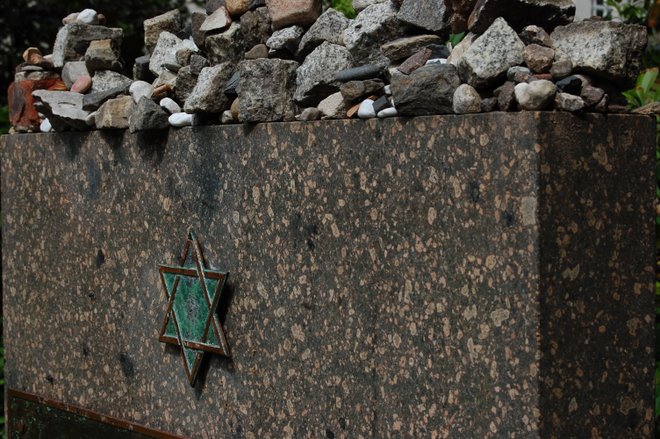 La traduzione è libera. Miei i commenti tra parentesi e le foto.
La traduzione è libera. Miei i commenti tra parentesi e le foto.Israele ha la più alta prozione di territorio protetto tra le nazioni che si affacciano sul mediterraneo, secondo un rapporto dell'unione internazionale per la conservazione della natura e delle risorse naturali (IUCN, http://www.iucn.org/). Secondo i dati di IUCN, l'area protetta in Israele costituisce il 16% del territorio. In Francia solo 11% del territorio è protetto, In Spagna il 7,7% e in Libano lo 0.5%. Uno spazio protetto consiste in riserve, parchi nazionali, campi agricoli e aree forestali. I dati indicano che Israele ha dedicato una parte estesa del proprio territorio alla conservazione della natura (l'area di Israele è poco più di quella della Puglia in Italia). Nonostante parte di questa sia "militarizzata" le autorità Israeliane riescono a limitarne l'impatto non proprio ecologico. Il rapporto si pronuncia in modo negativo sulla conservazione della natura nel mediterraneo (gli incendi in Grecia e Italia di quest'anno sono solo un piccolo esempio di come la natura sia bersaglio non solo dell'inquinamento antropogenico ma anche del vandalismo/terrorismo per se o a scopi di lucro). Il Bacino mediterraneo contiente più di 25000 specie diverse di flora, metà delle quali sono uniche. Anche metà dei rettili e due terzi degli anfibi sono endemici.

Israel leads Mediterranean countries in terms of nature reserves
By Zafrir Rinat, Haaretz Correspondent

Israel leads Mediterranean countries in terms of the proportion of its territory that is protected, according to a report by the International Union for the Conservation of Nature and Natural Resources (IUCN). According to IUCN figures, the protected area in Israel constitutes 16 percent of the country's total area, as opposed to 11.7 percent in France, 7.7 percent in Spain, and 0.5 percent in Lebanon. A protected open space consists of nature reserves, national parks, farmlands and forested areas. The numbers confirm that Israel has successfully allocated extensive areas to nature conservation.
However, the report overlooks the fact that a large amount of the open space in Israel is in military use, mostly in the Negev. While the IDF activities are environmentally unsustainable, a special agreement between the IDF and the Israel Nature and Parks Authority limits the damage they inflict. The IUCN report paints a bleak picture of nature conservation in the Mediterranean area. It points to a sharp decline of animal species, which are distinctive to this part of the world. Despite the increase of protected areas in the Mediterranean in recent years, the dwindling of flora and fauna has not subsided. Two thirds of marine mammals, a quarter of amphibian species
 , nearly half of shark species, more than half of freshwater fish species, and more than 10 percent of reptiles are in danger of extinction. According to the IUCN, the Mediterranean basin is one of the most distinctive ecological habitats in the world, containing more than 25,000 flora species, roughly half of which are unique. Most of these species are exploited in the production of food, medications, spices and other products. Also, about half of the reptiles and two thirds of the amphibians are unique. Two factors shadow Israel's environmental achievements: it is one of the seven countries that suffer from an acute water shortage, and has a high level of greenhouse gas emission per capita. According to the IUCN, the inaccurate estimation of local ecological systems' profitability as well as the unregulated exploitation of natural resources are among the primary reasons behind the poor naturw conservation in the area. (source HaAretz, http://www.haaretz.com/ )
, nearly half of shark species, more than half of freshwater fish species, and more than 10 percent of reptiles are in danger of extinction. According to the IUCN, the Mediterranean basin is one of the most distinctive ecological habitats in the world, containing more than 25,000 flora species, roughly half of which are unique. Most of these species are exploited in the production of food, medications, spices and other products. Also, about half of the reptiles and two thirds of the amphibians are unique. Two factors shadow Israel's environmental achievements: it is one of the seven countries that suffer from an acute water shortage, and has a high level of greenhouse gas emission per capita. According to the IUCN, the inaccurate estimation of local ecological systems' profitability as well as the unregulated exploitation of natural resources are among the primary reasons behind the poor naturw conservation in the area. (source HaAretz, http://www.haaretz.com/ )







Nessun commento:
Posta un commento